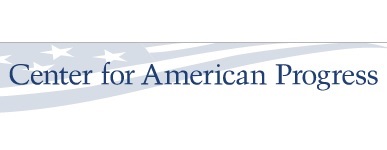Unprecedented Report Finds a Majority of Americans Live in Child Care Desert Neighborhoods
Washington, D.C. — Today, the Center for American Progress released a new reportlooking at the state of America’s child care deserts in 2018. The report, unprecedented in its scope, finds that a majority, or 51 percent, of Americans live in neighborhoods classified as child care deserts. Other key findings from the report include:

- Families in rural areas face the greatest challenges in finding licensed child care, with 3 in 5 rural communities lacking adequate child care supply. High-income suburban neighborhoods are the least likely to experience child care shortages.
- Nearly 60 percent of Hispanic/Latino families reside in child care deserts—a disproportionate and greater share than other racial and ethnic groups.
- Child care deserts have, on average, maternal labor force participation rates that are 3 percentage points lower than those of communities where there is adequate child care supply.
- The prevalence of child care deserts varies from state to state, from fewer than 23 percent of Maine neighborhoods to more than 75 percent of Utah neighborhoods.
Accompanying the report are a series of interactives that map America’s nearly 235,000 licensed child care providers across the country; measure child care desert status and degree by census tract; and assess various social factors, such as racial breakdown or percentage of young children with all parents in the labor force, by neighborhood.
“Too many American families, particularly those in rural and Latino communities, live in neighborhoods with inadequate access to child care,” said Rasheed Malik, senior policy analyst for Early Childhood Policy at CAP and co-author of the report. “This report makes clear that in order to realize the full potential of our workforce, lawmakers must prioritize scaling America’s child care supply.”
“As Congress considers an infrastructure investment, this report shows that child care centers and homes need to be part of that legislation,” said Katie Hamm, vice president of Early Childhood Policy at CAP. “Increasing federal funding for child care assistance is critical to expanding access to child care and combating child care deserts.”
Please click here to read: “America’s Child Care Deserts in 2018” by Rasheed Malik, Katie Hamm, Leila Schochet, Cristina Novoa, Simon Workman, and Steven Jessen-Howard
For more information or to speak with an expert, please contact Colin Seeberger at "> or 202-741-6292.
Contact: Colin Seeberger
Email:














